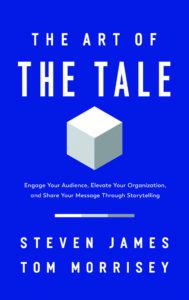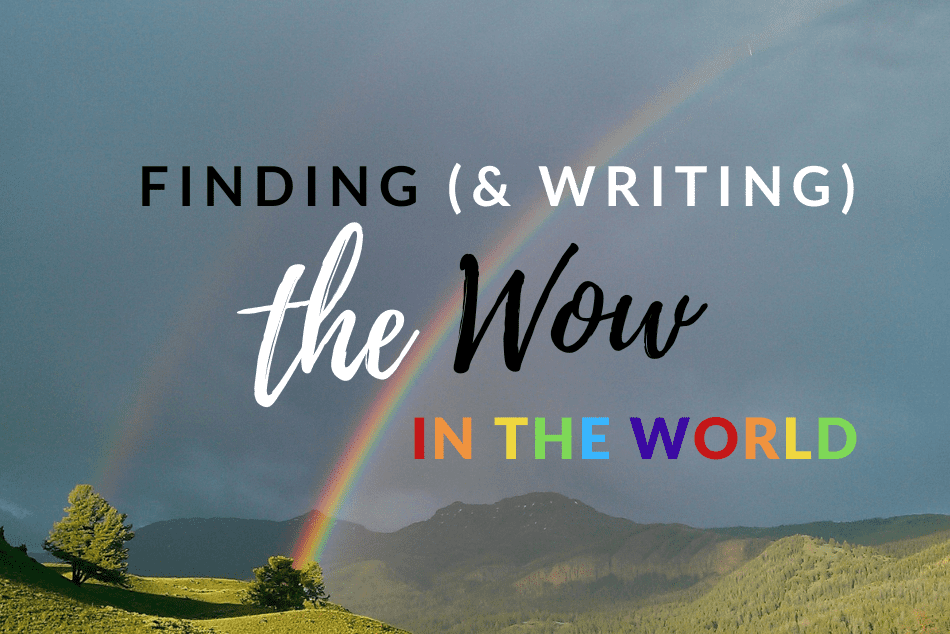By Steven James
Our lives are rich with stories. Once we begin to open our eyes, we’ll start to see stories emerging from everywhere. But that’s the secret: opening our eyes.
I spent the summer after my freshman year in college working as a camp counselor for a YMCA camp in northern Wisconsin. That year, we hosted a session for children with special needs. Each cabin was limited to five children, ages five to eight, with two adult counselors and a full-time therapist assigned to it.
That gives you an idea of the individualized attention required for each of the campers.
One boy thought he was an airplane and would fly off everywhere— typically in the opposite direction from where we were supposed to be going. Another boy didn’t use the toilet because he’d seen a television commercial with a toilet that had teeth, so he was terrified of them. (That created its own set of unique challenges for all of us.)
But it’s Philip who I remember the most. He’d just finished second grade.
Six months earlier, he’d stopped talking.
No one knew what the problem was, but he was obviously having a difficult time fitting in and adjusting to his class at school.
“He won’t talk,” his mom told us when she dropped him off. “But he’ll listen.”
And she was right. For the first three days of camp, as we played games, went swimming, made craft projects out of popsicle sticks, and the rest of us sang camp songs, he did listen.
But he didn’t speak.
Well, it was the fourth day of camp and it’d been raining all morning, putting a crimp on our activities. Being cooped up in the cabin had made us all a little stir crazy. The other counselor was zoned out, strumming absently on his guitar; the therapist was speaking in hushed tones with the boy who liked to fly away into his own world; and I was on the porch, desperately trying to come up with some- thing we could do in the cabin to pass the time.
As I was reviewing my notebook of indoor game ideas, the rain broke, and a few minutes later Philip joined me on the porch. When he did, I glanced up from my notebook and noticed a double rain- bow cresting the sky, but I was so focused on my work that I quickly went back to my brainstorming without giving it another thought.
But when Philip looked up, he didn’t turn away. He just stood there stock-still beside me on the porch and stared at the heavens, at those twin rainbows, at the sunlight streaming through the narrow gaps in the gray, anvil-shaped storm clouds. And then Philip held his arms out as if he were trying to embrace the day, and he said the only words I ever heard him speak. The first words that, as far as we knew, anyone had heard him utter in half a year.
As he stood there, arms outstretched, Philip said in a bright, astonished voice, “Wow. Look at the world.”
And then he glanced back at me, lowered his arms, and was quiet again, disappearing into whatever place he’d retreated to six months earlier.
But I did look. I opened my eyes and I looked at the world—at the rainbows and the clouds and the illuminating sunlight finding its way toward me. Something deep inside of me stirred and I marveled at the beauty before me and the child who’d managed to get me to open my eyes and notice it.
I never heard Philip speak again. But he taught me more in that one sentence than some people ever learn in a lifetime.
On the porch that day, next to the list of activities I was hoping to do, I wrote in my notebook, “Look at the world. Be amazed.”
Maybe Philip had something to do with my journey toward becoming a storyteller, something to do with my goal of trying to help other people open their eyes and glimpse, even for just a moment, the wonder of the world that we so often miss.
Wow.
Look at the world.
Yes, Philip. I will.
I am.
Writing the WOW
What stories have found you? Tell the ones that matter to you—that whisper and scream and rattle against the cage of your heart and beg to be told. As preaching professor Richard L. Thulin noted, “Any event that evokes an emotional response from us is a personal story in embryo. It is worth retelling and exploring.”
The event doesn’t need to be something extraordinary. It isn’t the unusual that will necessarily draw people in, but the unexpected accentuation of the familiar. Open your eyes, speak from your heart, and direct our attention to what we all see but don’t always notice. That’s where the poignancy of your story will lie. Start with what is normal, end with what is new.
Maybe it’s the emotions of the story or the poetry of the language or the message or the images or the humor that draws you in. Maybe you don’t even know what it is, but the story has grabbed you and won’t let you go.
That’s a story that has discovered its place in your life. That’s a story to hold onto. To tell.
Excerpted from The Art of the Tale by Steven James and Tom Morrisey; Copyright © 2022 by Steven James and Tom Morrisey. Used by permission of HarperCollins Leadership.
 In The Art of the Tale (new in August 2022), expert storytellers Steven James and Tom Morrisey team up and tap into their lifetimes of experience to show writers and non-writers alike how to prepare stellar presentations, tell stories in your own unique way, adapt your material to different groups of listeners, and gain confidence in your ability as a speaker. Learn more here, or get your copy wherever books are sold.
In The Art of the Tale (new in August 2022), expert storytellers Steven James and Tom Morrisey team up and tap into their lifetimes of experience to show writers and non-writers alike how to prepare stellar presentations, tell stories in your own unique way, adapt your material to different groups of listeners, and gain confidence in your ability as a speaker. Learn more here, or get your copy wherever books are sold.





